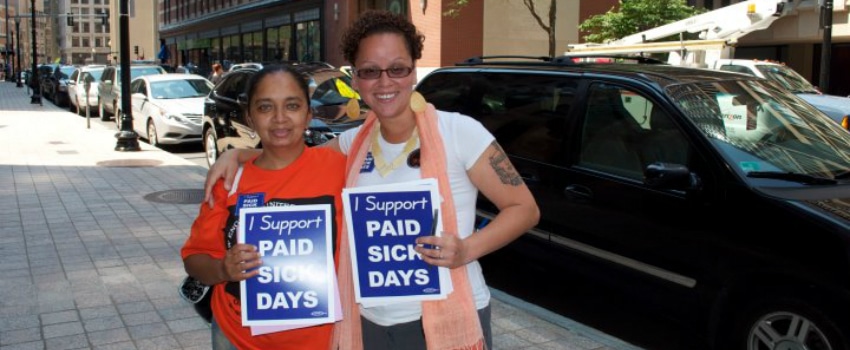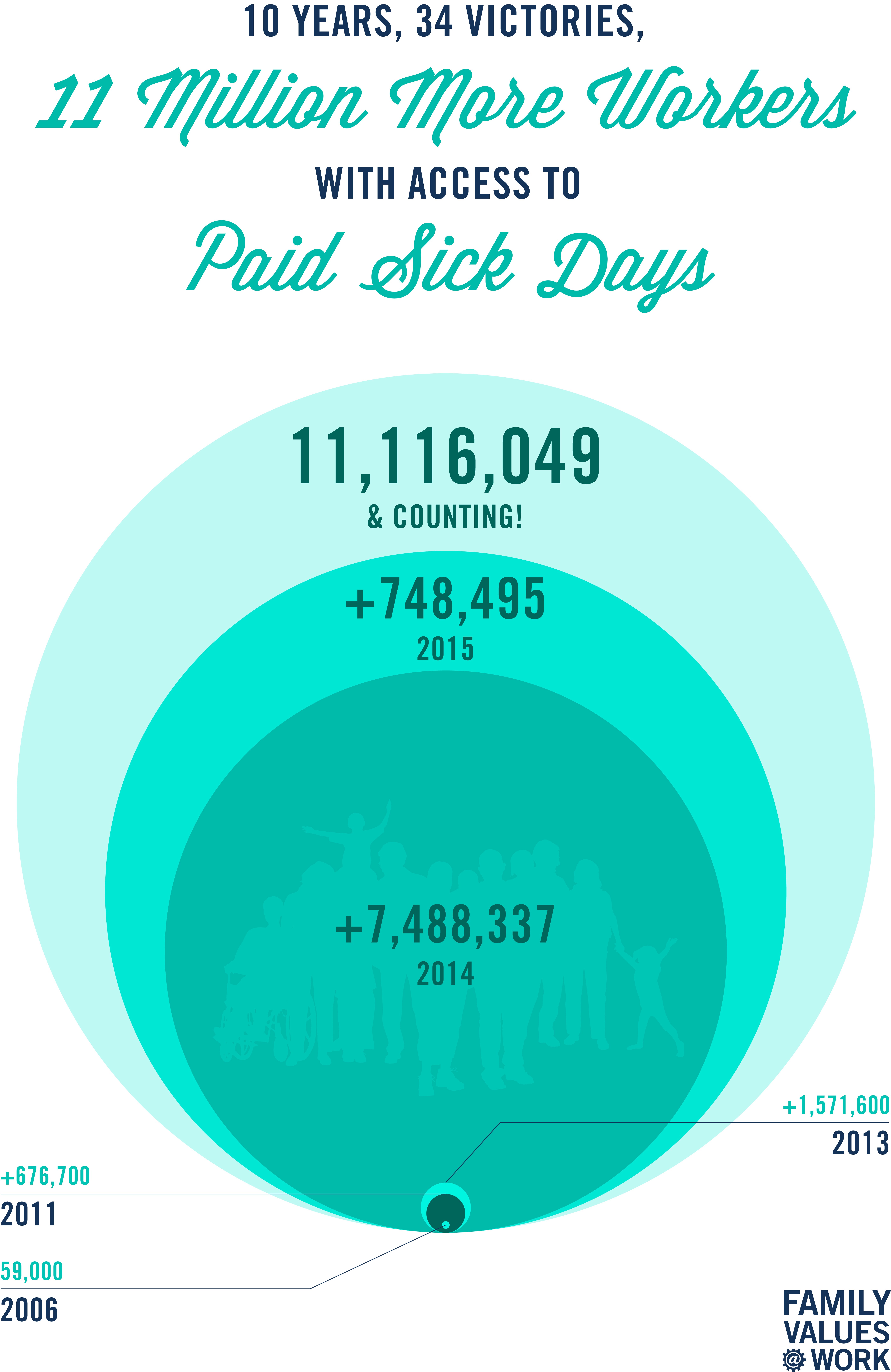What Are Paid Sick Days?

Every worker in America does have the right to stay home when they or a loved one is sick. But under federal law, at least, they have no right to get paid or even to keep their job if they do so.
That’s because the U.S. is alone among the wealthy countries in failing to guarantee any paid sick days. A paid sick day is job-protected, paid time away from work for someone to heal from an illness, see a doctor or care for a sick loved one.
Almost everyone gets colds and flus and other routine illnesses that can knock you out for one day — or several. Even if you’re one of the lucky ones who rarely gets sick, anyone with kids knows that they catch everything from strep throat to pink eye. School or child care says you can’t bring them in — but work may tell you that staying home with them will cost your job or your paycheck.
Many people believe that has to be against the law. But except for certain jurisdictions, it is not.
Today 36%, or nearly 40 million people, do not earn a single paid sick day. And the percentage is much higher for lower-wage workers, including the people who make and serve our food and provide personal care services to the frail and elderly. When the only option is to go without much-needed pay, too many workers are forced to go into work sick, often jeopardizing the health of their coworkers and customers.
Millions who do earn the time aren’t allowed to use it to care for a sick child or other loved one. Many get paid sick days but no pay for the first day they’re sick or even the first two days. Others earn time but get some kind of demerit for using it.
The number without paid sick days used to be 7 percent higher — until the coalitions in Family Values @ Work and our partners started building campaigns to change that. Since 2006, 36 locations — 5 states, 1 county and 30 cities — have won paid sick days, and many more are on the horizon.
 More than 11 million people for the first time will be able to earn paid sick days as a result.
More than 11 million people for the first time will be able to earn paid sick days as a result.
The good news is, these wins have been around long enough for researchers to study them. And the evidence is clear: Paid sick days boost productivity, reduce employee turnover and increase consumer spending.
Most of these laws also include time for someone who’s experienced domestic or sexual violence to heal or seek shelter or take legal action to prevent further violence. Paid sick and safe days help reduce violence and enhance public health and safety.
No one should be punished for being a good parent or following doctor’s orders. Our movement is making a difference in winning local and state laws which are paving the way for a national bill, the Healthy Families Act.